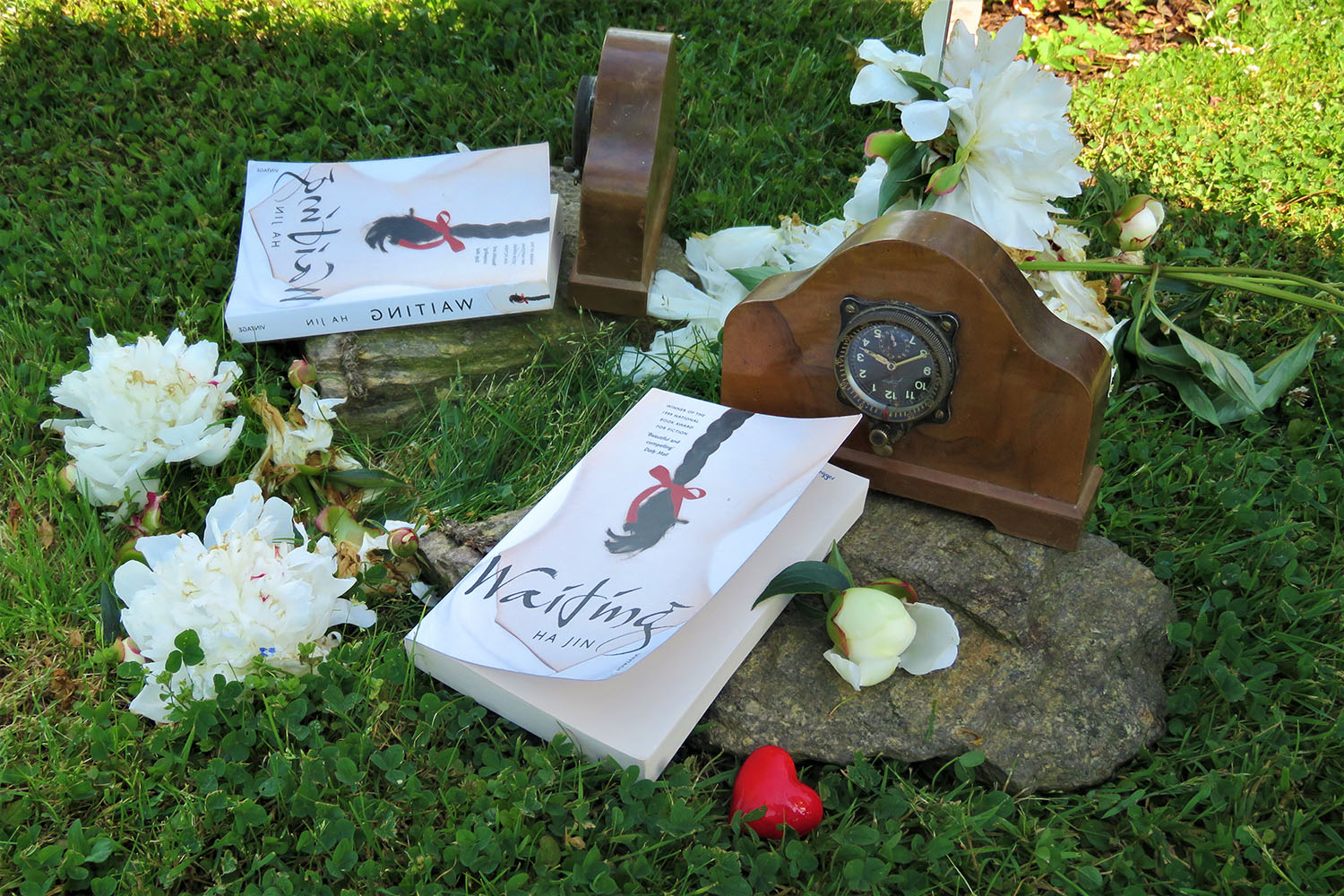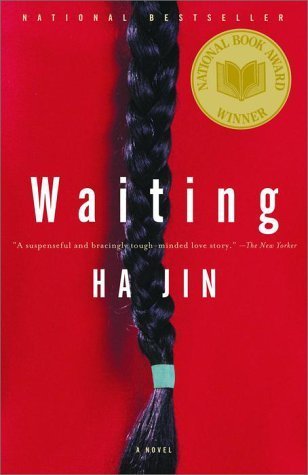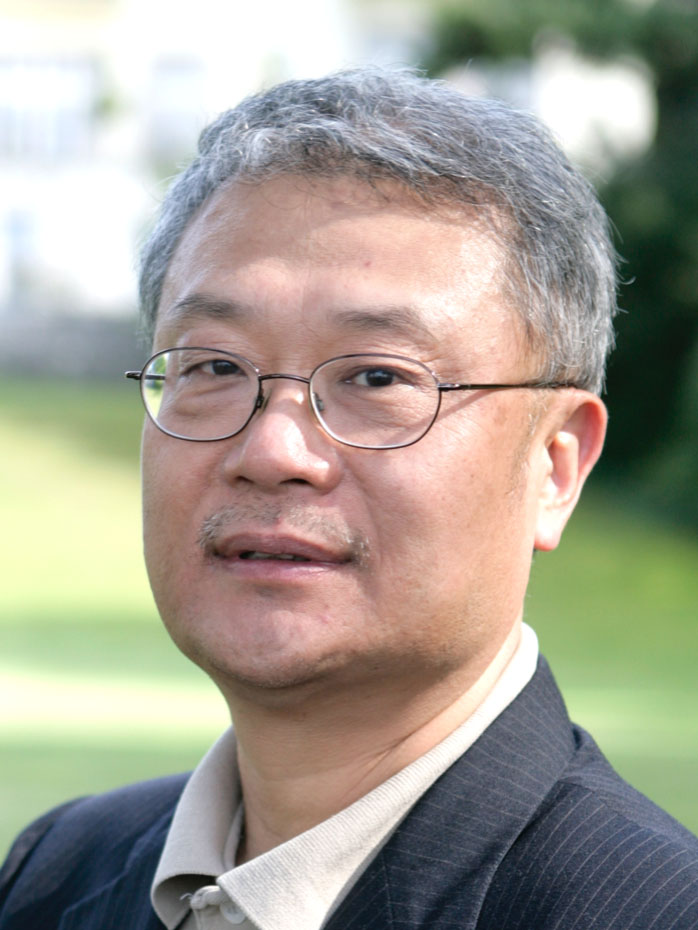Published June 15th, 2020
Review
by Martina Braunegger

Waiting for love. Waiting for life. Waiting for freedom. Waiting only to realize that what you have been waiting for is not what you want after all. Waiting, also, is a truly touching and authentic story and reflection of a culture and society in which freedom was merely an illusion.
In his novel Waiting, Ha Jin allows the reader a glimpse into Chinese cultures and societies between the 1960s and 80s. The novel was published in 1999 and is based on a true story that Jin heard from his wife. Ha Jin was born in China and experienced for himself the cultural revolution, which is also a central theme in Waiting. The political and socio-economic background shapes the story and influences the protagonist’s fate in numerous ways.

Lin Kong is torn between his life in the fictional city, Muji City, and the life he lives with his unloved wife on the countryside. The novel illustrates that certain liberties that we take for granted were simply not given to people in China in the 1960s to 80s. When divorcing your wife is impossible, reporting a rape would make you a slut and just holding someone’s hand makes you a felon, your world seems rather small and heteronomous. The frustration of being that limited in your ways and having to depend that much on others shapes the tone of the book. Waiting for eighteen years to be able to marry or even touch the one Lin thinks he actually loves leaves its traces on his soul and makes his life pure agony.
What do you do when you have spent the majority of your life waiting for your life to start and then realize that your dream was utopian, and that reality cannot live up to the fantasy? Do you tell the woman that has been nothing but patient and loves you whole-heartedly or do you remain silent and wait for your salvation?
The novel draws you in from the very first sentence on. Opening with “[e]very summer Lin Kong returned to Goose Village to divorce his wife, Shuyu” sparks interest and you cannot help but keep reading. For seventeen consecutive years, Lin uses his few days off to return to the countryside and tries to get a divorce. Every year he fails. Separating from one’s wife in these days in China poses a great difficulty and is extremely frustrating for Lin, who only agreed to marry Shuyu in the first place because his parents picked her out for him. With him working in an army hospital in the city, his parents needed someone to take care of them and to look after the land. Old traditions and conventions were still strictly followed on the countryside and so Lin agreed to marry a woman much older than him who catered to all his needs and was the embodiment of the old ways. Shuyu’s bound feet illustrate that tradition strikingly, and so does her will to put his happiness over her own.
Back in the city, Lin is embarrassed of his wife and rarely speaks of her. The bound feet, the fact that she is much older and simply the way she carries herself are reasons enough for him to hide her from his coworkers. There has never been love between them and solely out of sheer obligation they got a daughter. When Lin meets Manna, he realizes that there might be something missing in his life. Both work in the hospital and her strength and interest in literature fascinate him. They start spending a lot of time together and Manna falls head over heels for the married doctor. His failed attempts to get a divorce shape their relationship and only after eighteen years does he finally manage to separate from his wife and marry Manna.
The story revolves around Lin, Manna and Shuyu and paints a picture of Chinese culture and society at the time. Insights into these very different characters allow the reader to really feel their pain, frustration and hopelessness. Shuyu has never learnt to have her own opinion and struggles to adapt to the changing times. As the novel covers more than twenty years, you can see a change in the characters’ personalities and also in the portrayed Chinese culture. Lin appreciates Shuyu’s reliability and loyalty, and although he is first embarrassed by her laid-back ways, he later longs for these established and familiar norms. He finds that a relationship in which everybody plays their part emotionless might actually be preferable to a sometimes chaotic marriage in which both individuals think they have the right to more and happiness and love outrank a peaceful life lived side by side.

Lin is a highly troubled character that does not know what he wants from life and love, and seems to be sentenced to never actually feeling completely content. This affects both, Manna and Shuyu and leads to three desperate characters with shattered hopes and dreams. Manna has always been by herself and led a very responsible life. In return she got her heart broken, was raped by somebody she trusted and has been damned to wait for the man she loves more than anything else for almost two decades; all the while hearing her biological clock ticking. As a reader you cannot help but laugh and cry with these three flawed and troubled characters that are trapped in a society that could not care less about their dreams and wishes.
Personally, I enjoy learning about other cultures and customs through books and creative texts. Ha Jin’s Waiting takes you on a journey to a China I certainly would not want to live in, but at the same times fascinates and shocks you because it seems so foreign. It is difficult to accept that this cruel reality did not happen that long ago: a China in which a woman does not dare to report a rape, because nobody would believe her and because it would tell the world that she was not a virgin anymore; a world in which a man is forced to stay legally bound to a woman that he has no feelings for and is kept from even holding hands with the one he actually wants to be with.
Have you truly lived your life when it has not been anything but a waiting for better days? Waiting for love, for freedom, for your life to finally begin and then realizing that it is not at all what you had envisioned, is certainly not easy and even more difficult to admit to the person who has been waiting with and for you. The book makes you think about love, freedom and the conception of happiness. It comes to no surprise that the book got much recognition and Ha Jin received the National Book Award for Fiction and the PEN/Faulkner Award for his novel Waiting and was even a finalist for the Pulitzer Prize. It is truly a remarkable book that takes the reader on a journey to the communist China and touches upon every-day issues, problems and limitations that countless people had to learn to live with. Inspired by a true story, it moves you and you cannot help but feel compassion for every single character.
Nationality: Austrian
First Language(s): German
Second Language(s):
English,
French,
Spanish
Supported by:

